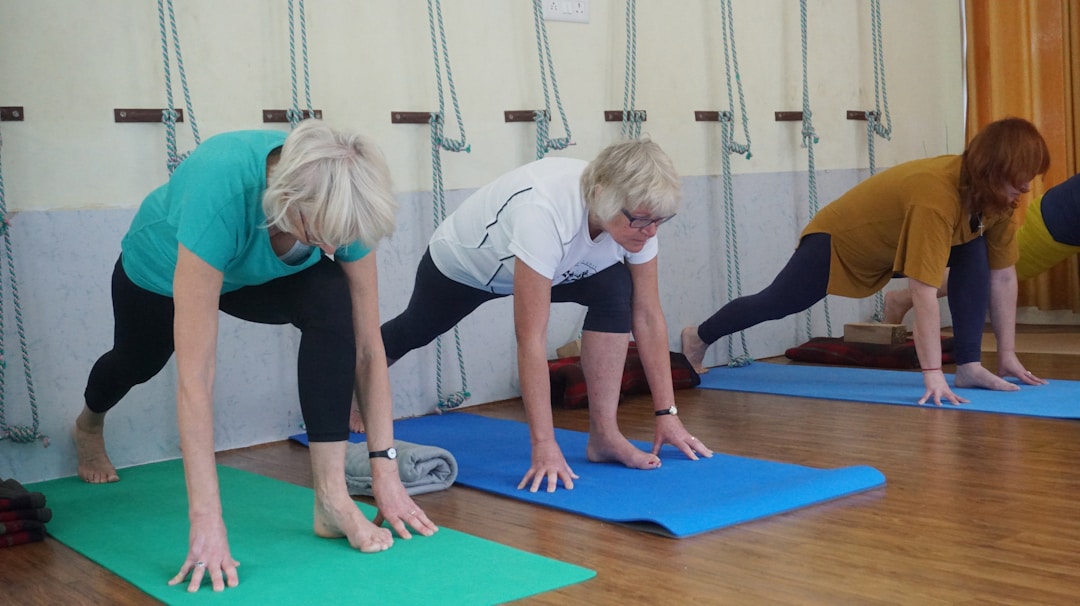All women grow up with the knowledge that they will eventually go through menopause. While the symptoms of menopause, like hot flashes, aggressive mood swings, and irritability, are common knowledge, there isn’t much dialogue regarding how to cope with this complex physical change. This is a challenging part of a woman’s life, and it’s something that shouldn’t be dealt with in isolation.
It’s great to seek advice and to be in the company of others. Menopause isn’t a “misery loves company” situation, so be with people who you love during this difficult time, be self-aware, and be nice to yourself. Along the way, here are some tips for you to consider while learning to navigate this transition.
1. Eat healthy foods and exercise regularly.

A healthy diet and regular exercise are important for managing symptoms of menopause. Eating a healthy amount of fruits, vegetables, foods rich in calcium and vitamin D, and exercising regularly have numerous benefits, including the prevention of loss of bone mass, weight loss to help maintain a healthy body weight, a boost in your metabolism, and the prevention of heart disease. Excess body fat may intensify your menopausal symptoms and also significantly increase your risk for heart disease.
Post-menopause side effects include an increased risk for heart disease, so taking initiative during the stage of perimenopause to maintain a healthy lifestyle will significantly decrease your chances of heart disease. Also, be sure to include whole grains and foods rich in omega-3 fatty acids, and avoid red meat and sugary foods.
2. Exercise your brain, too.

Brain fog is another symptom of menopause that isn’t openly discussed. Issues with short-term memory and difficulty with concentration are issues that aren’t necessarily related to changes in hormones but are certainly symptoms of the perimenopause stage.
Along with regular exercise, try incorporating brain exercises into your daily routine. Challenge your brain in new ways by doing crossword puzzles, begin learning a new language, or even reading a chapter of a book. The idea is to flex your brain muscle daily to keep it in as good of shape as the rest of your body.
3. Religiously practice self-care.

Loving yourself and practicing deliberate self-care will significantly increase your quality of life. Your brittle nails are a result of the hormone changes your body is experiencing, so take yourself to the nail salon and get a manicure. Exercise is also an excellent form of self-care. It will help keep your mind clear and give you a boost in your self-confidence. Taking probiotics will help maintain your gut health and help reduce the symptoms of diarrhea or constipation you may be experiencing. There are also other treatment options to consider to help manage your mood swings, nausea, dizziness, or irregular appetite that also accompany the symptoms of menopause. Cannabis use and CBD use have been shown to help alleviate these symptoms, so if you’re hesitant to use prescription pain medication then this natural alternative may be something you want to consider.
Plus, there are also studies being done on how CBD oil can be used to treat anemia. You might be surprised to hear that this condition of iron-deficiency anemia is actually quite common in women, so it’s worth considering using CBD oil to improve your hormonal health your and overall wellbeing.
4. Use doctor-formulated tools and supplements.

While going through menopause, you will experience a whole host of systems that deserve some form of treatment that prioritizes a woman’s health. Check out MenoLabs for the support and direction that you deserve. This support comes in a variety of applicable holistic approaches. At MenoLabs, they believe in supporting women through all stages of menopause by utilizing supplements that prevent hot flashes and help with the stress on your body. Plus, they have a tracking app to use to manage and monitor symptoms and healthy recipes that supply nutrients that you need.
5. Don’t hesitate to reach out.

An essential part of dealing with the discomfort during menopause is feeling able to reach out to those you love, and it’s valuable to connect with people who are trying to reach out to you as well. With the number of spam calls so many receive on daily basis, it’s understandably hard to figure out who’s attempting to connect with you. If you want to know how to figure out who called you or if you’re receiving phone calls from an unknown number, you may want to get to the bottom of where these incoming calls are coming from. This is an effective way to get in contact with all of the important people in your life rather than wasting time weeding out spam callers. In turn, you’ll be able to speak with those loved ones to get the emotional support that you deserve.





